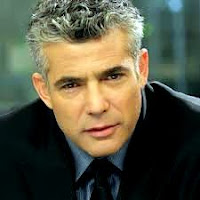Some correspondence I recently received clearly shows that there are rabbis - perhaps the majority - who will profess that while they are very concerned about the welfare of children - but it is less important than being makpid on lashon harah.
Summary of correspondence: His Rav claims that allegations read or heard were lashon harah unless charges were first upheld in beis din based on testimony of 2 kosher witnesses. Questioned whether the average person is allowed to read such allegations on a blog such as mine since they don't need to know and thus the lashon harah serves no purpose.
This is the view clearly expressed by Rav Menashe Klein Put another way, these rabbis refuse to accept even the existence of abuse unless it can be reported in ways that don't violate the prohibition of lashon harah.
Summary of correspondence: His Rav claims that allegations read or heard were lashon harah unless charges were first upheld in beis din based on testimony of 2 kosher witnesses. Questioned whether the average person is allowed to read such allegations on a blog such as mine since they don't need to know and thus the lashon harah serves no purpose.
This is the view clearly expressed by Rav Menashe Klein Put another way, these rabbis refuse to accept even the existence of abuse unless it can be reported in ways that don't violate the prohibition of lashon harah.
It is critical to realize that the same verse that prohibits lashon harah - also says that one should not stand by when someone is being hurt physically, psychologically or financially. In fact the commentaries - including that of Rav Elchonon Wasserman understand that there is no prohibition of lashon harah in a situation where a person can be saved from harm by speaking about it.
Vayikra (19:16) You shall not go up and down as a slanderer among your people; nor shall you stand against the blood of your neighbor; I am the Lord.
Relevant previous posts:
Rabbi Zwiebel of the Aguda saying lashon harah is a high price to pay to save kids from abuse
Rav Menashe Klein rejects the view of gedolei hador regarding child abuse - requires 2 witnesses and beis din
====================In contrast ===================
Rav Moshe Sternbuch saying that prohibition of lashon harah is not justification for not listening to allegations - he cites Rav Chaim Ozer and the Gerrer Rebbe.
Pischei Teshuva - saying not saying lashon harah to save people is worse than lashon harah
Rav Elchonon Wasserman - lashon harah prohibited only if intent to harm others
Rema - 2 kosher witnesses not needed
Relevant previous posts:
Rabbi Zwiebel of the Aguda saying lashon harah is a high price to pay to save kids from abuse
Rav Menashe Klein rejects the view of gedolei hador regarding child abuse - requires 2 witnesses and beis din
====================In contrast ===================
Rav Moshe Sternbuch saying that prohibition of lashon harah is not justification for not listening to allegations - he cites Rav Chaim Ozer and the Gerrer Rebbe.
Pischei Teshuva - saying not saying lashon harah to save people is worse than lashon harah
Rav Elchonon Wasserman - lashon harah prohibited only if intent to harm others
Rema - 2 kosher witnesses not needed



















